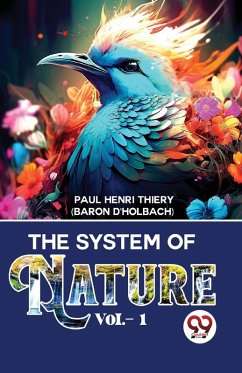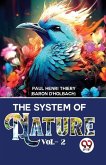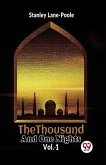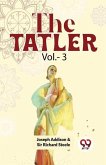The System of Nature Vol. 1 is a philosophical work written by the French philosopher Paul Henri Thiery, who wrote under the pseudonym Baron d'Holbach. The book is considered a seminal work of Enlightenment philosophy. The System of Nature presents a materialist and atheistic worldview, arguing that the universe is governed by natural laws rather than divine intervention. The author presents that everything in the universe can be explained by physical and mechanical processes, without the need for a supernatural or spiritual explanation. The book is divided into two parts. The first volume presents texts against the existence of God, arguing that belief in God is based on superstition and fear rather than reason and evidence. The book is clear and persuasive, presenting a bold and radical challenge to traditional religious and philosophical ideas.
Hinweis: Dieser Artikel kann nur an eine deutsche Lieferadresse ausgeliefert werden.
Hinweis: Dieser Artikel kann nur an eine deutsche Lieferadresse ausgeliefert werden.








